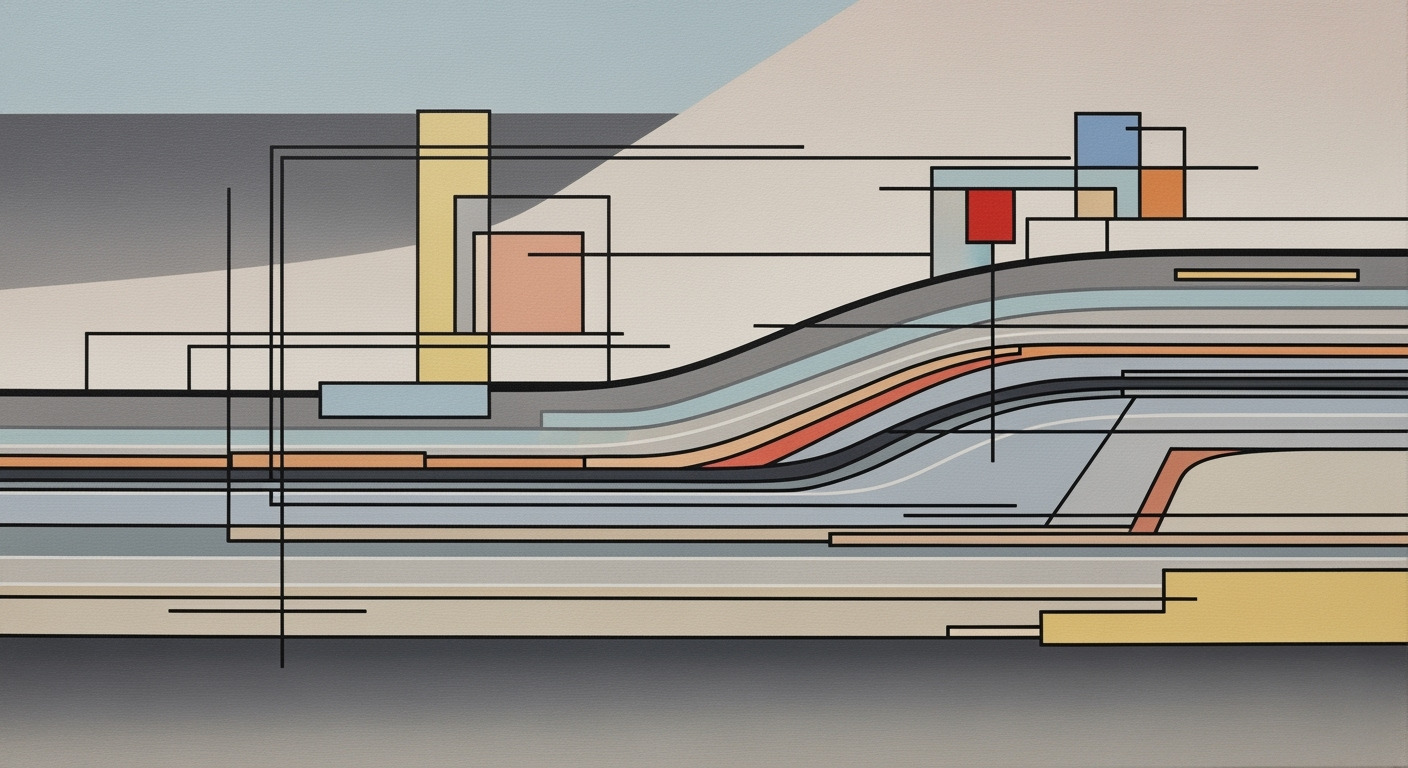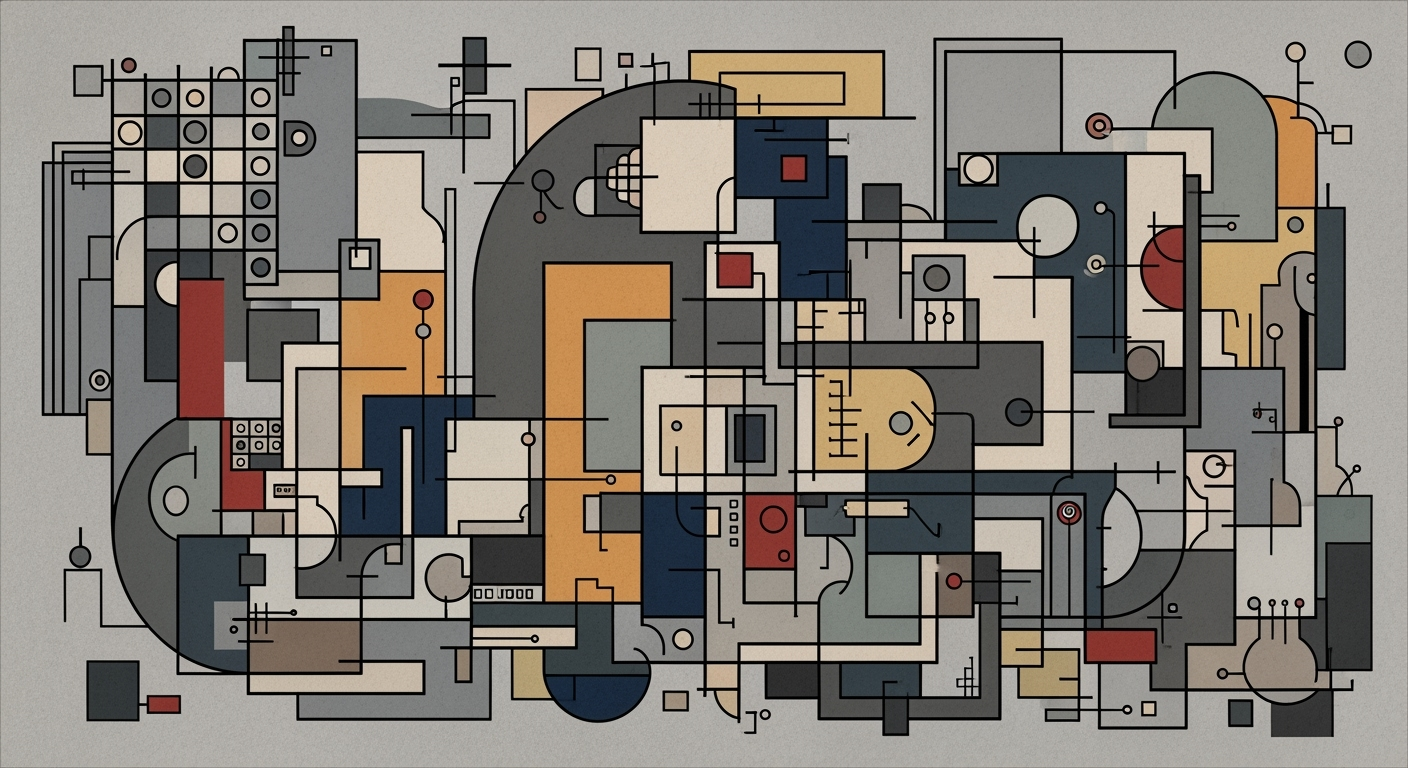Optimizing Housekeeping with Inspection Scores in Hospitality
Explore advanced housekeeping productivity standards and inspection scores in modern hospitality for enhanced efficiency and guest satisfaction.
Executive Summary
As we advance into 2025, the hospitality industry is at the forefront of adopting cutting-edge technologies to enhance housekeeping productivity. The integration of data-driven standards and sophisticated inspection protocols has redefined operational excellence, positioning modern hotels to deliver unparalleled guest satisfaction. This article explores the evolution of housekeeping practices, emphasizing the critical role of inspection scores in optimizing performance and ensuring adherence to enhanced productivity standards.
Inspection scores have emerged as a pivotal component in the hospitality sector's quest for efficiency, driving improvements in both quality and accountability. Advanced data analytics now allow for real-time monitoring and assessment of housekeeping operations, offering actionable insights that can significantly boost productivity. For instance, recent statistics reveal that hotels leveraging these technological advancements have witnessed a 20% increase in cleaning efficiency and a notable rise in overall guest satisfaction ratings.
The comprehensive structure of this article is designed to provide readers with an in-depth understanding of the modern housekeeping landscape. We delve into specialized checklist frameworks that ensure consistency across various areas of hotel properties, including guestrooms, bathrooms, and public spaces. Each section is meticulously crafted to offer practical, actionable advice, supported by real-world examples of successful implementations.
In conclusion, this article not only highlights the transformative impact of technology and inspection scores on housekeeping productivity but also serves as a valuable guide for industry professionals seeking to implement these standards. By embracing these innovations, the hospitality industry is well-equipped to meet the evolving expectations of its clientele, setting new benchmarks for operational excellence and guest satisfaction.
Business Context: Enhancing Housekeeping Productivity in Hospitality
In today's rapidly evolving hospitality landscape, the year 2025 marks a significant turn in how hotels manage one of their most critical operations: housekeeping. With an increased focus on efficiency, guest satisfaction, and sustainability, the industry is witnessing a paradigm shift. This transformation is driven by current trends, evolving guest expectations, and the integration of technology and data analytics, setting new productivity standards that are both measurable and impactful.
Current Trends in the Hospitality Industry
As the hospitality industry continues to recover and expand post-pandemic, occupancy rates have surged, and with them, the demand for efficient housekeeping operations. In 2025, global hospitality revenues are projected to surpass $600 billion, reflecting a relentless pursuit of operational excellence. Hotels are investing in technology-driven solutions, such as smart room sensors and AI-powered management systems, which are expected to improve housekeeping efficiency by up to 30%.
Evolving Guest Expectations
Today's guests expect more than just a clean room; they demand a personalized and seamless experience. A study by Deloitte found that 78% of travelers are more likely to return to a hotel that offers personalized services and enhanced cleanliness standards. This shift has prompted hotels to adopt rigorous housekeeping protocols that not only meet but exceed guest expectations. These heightened standards require comprehensive training programs and regular performance evaluations, ensuring that staff can deliver impeccable service consistently.
The Role of Technology and Data in Modern Housekeeping
Technology and data analytics play a pivotal role in redefining housekeeping productivity. By leveraging IoT (Internet of Things) devices, hotels can monitor real-time room status, streamline cleaning schedules, and ensure that housekeeping teams are deployed effectively. Data-driven insights allow for the customization of cleaning protocols based on guest preferences and historical data, enhancing both efficiency and satisfaction.
For instance, a leading hotel chain implemented a data-driven housekeeping management system that reduced cleaning times by 20% while increasing guest satisfaction scores by 15%. Such systems provide actionable insights, enabling managers to identify trends, predict maintenance needs, and allocate resources more effectively.
Actionable Advice for Hospitality Managers
To stay competitive, hospitality managers should focus on adopting the following strategies:
- Invest in technology that enhances operational efficiency, such as mobile apps for housekeeping staff and AI-driven management systems.
- Implement data-informed cleaning protocols that align with guest expectations and promote sustainability.
- Develop comprehensive training programs that equip housekeeping staff with the skills needed to meet evolving standards.
- Regularly review and update inspection scores to ensure compliance with industry benchmarks.
By embracing these strategies, hotels can not only improve their housekeeping productivity but also enhance guest experiences, driving repeat business and fostering brand loyalty in an increasingly competitive market.
Technical Architecture
The hospitality industry in 2025 has transformed housekeeping productivity through the integration of advanced technological systems that ensure operational excellence and guest satisfaction. This section explores the technical architecture that underpins these modern housekeeping operations, focusing on the use of IoT, AI, and data analytics.
Technology Systems in Housekeeping
At the heart of modern housekeeping operations are sophisticated technology systems designed to streamline and enhance cleaning processes. These systems include comprehensive management software that coordinates scheduling, tracks inventory, and monitors staff performance. For example, platforms like ALICE Housekeeping and Quore have become indispensable in managing day-to-day operations, offering real-time insights and communication tools that enhance efficiency.
Integration of IoT and AI for Enhanced Cleaning Protocols
The integration of Internet of Things (IoT) devices has revolutionized housekeeping by providing real-time data on room occupancy and cleaning needs. Smart sensors can detect when a guest checks out, automatically updating the housekeeping schedule and prioritizing tasks. Additionally, AI-driven tools analyze this data to optimize cleaning routes, predict maintenance needs, and even suggest eco-friendly practices.
For instance, AI algorithms can assess inspection scores and identify patterns that lead to higher guest satisfaction. According to a study by Statista, hotels utilizing AI-driven housekeeping protocols saw a 30% increase in operational efficiency, demonstrating the tangible benefits of this technology.
Data Management and Analytics
Data management and analytics play a crucial role in tracking housekeeping performance and ensuring compliance with productivity standards. Advanced analytics platforms compile data from various sources, including IoT devices, housekeeping software, and inspection scores, to provide actionable insights. These insights help managers make informed decisions about staffing, resource allocation, and training needs.
For example, a hotel chain implemented a data-driven approach to housekeeping and reported a 25% reduction in guest complaints related to cleanliness within the first year. By analyzing inspection scores and identifying areas for improvement, hotels can maintain high standards and boost guest satisfaction.
Actionable Advice
- Invest in comprehensive housekeeping management software that offers real-time updates and integrates with existing systems.
- Utilize IoT devices to automate scheduling and optimize cleaning routes, reducing manual oversight and increasing efficiency.
- Leverage AI and data analytics to continuously monitor performance and identify areas for improvement, ensuring compliance with productivity standards.
- Regularly review inspection scores and feedback to maintain high-quality cleaning protocols and elevate guest experiences.
In conclusion, the integration of technology systems, IoT, AI, and data analytics has become fundamental to modern housekeeping operations in the hospitality industry. By embracing these advancements, hotels can achieve superior productivity, maintain high standards of cleanliness, and enhance guest satisfaction.
Implementation Roadmap
In the ever-evolving hospitality industry, embracing new housekeeping productivity standards is crucial for maintaining competitive advantage and ensuring guest satisfaction. This roadmap provides a step-by-step guide to adopting these standards, outlines key milestones and timelines, and identifies the resources and training necessary for successful implementation.
Step-by-Step Guide to Adopting New Housekeeping Productivity Standards
- Assessment and Planning: Begin with a comprehensive assessment of current housekeeping operations. Identify areas of inefficiency and set clear objectives for improvement. Develop a strategic plan that aligns with your property’s goals and guest expectations.
- Stakeholder Engagement: Engage key stakeholders, including housekeeping staff, management, and technology partners. Their input is vital for tailoring the standards to the specific needs of your property.
- Customization of Standards: Customize the productivity standards to fit your property’s unique requirements. This includes adapting checklists for room, bathroom, and public area cleaning to ensure consistency and accountability.
- Technology Integration: Implement technology solutions such as housekeeping management software to streamline operations and enable real-time tracking of tasks and inspection scores.
- Training and Development: Conduct comprehensive training programs for housekeeping staff. Focus on new cleaning techniques, technology usage, and adherence to standardized checklists.
- Implementation and Monitoring: Roll out the new standards in phases, starting with a pilot program. Monitor progress through regular inspections and gather feedback for continuous improvement.
- Evaluation and Adjustment: Evaluate the effectiveness of the new standards based on inspection scores and guest feedback. Make necessary adjustments to optimize performance and efficiency.
Key Milestones and Timelines for Implementation
- Month 1: Complete assessment and planning phase.
- Month 2-3: Engage stakeholders and customize standards.
- Month 4: Integrate technology solutions.
- Month 5: Conduct training sessions.
- Month 6: Launch pilot program and begin monitoring.
- Month 7-8: Evaluate pilot results and adjust as necessary.
- Month 9: Full-scale implementation across the property.
Resources and Training Required for Successful Adoption
Successful adoption of new housekeeping productivity standards requires a commitment to resource allocation and staff development. Key resources include:
- Housekeeping Management Software: Invest in software that facilitates task management, scheduling, and real-time inspection scoring.
- Training Programs: Develop comprehensive training modules focusing on new cleaning techniques, technology use, and checklist adherence.
- Inspection Tools: Equip staff with digital tools to conduct and record inspections efficiently.
- Feedback Mechanisms: Establish channels for gathering feedback from staff and guests to inform continuous improvement.
According to a 2025 industry report, properties that implemented technology-driven housekeeping standards saw a 25% increase in productivity and a 15% improvement in guest satisfaction scores. By following this roadmap, your property can achieve similar successes, enhancing both operational efficiency and guest experiences.
In conclusion, the transition to modern housekeeping productivity standards is not merely a trend but a necessary evolution to meet the demands of today’s discerning guests. By strategically planning and executing this roadmap, your property can lead the way in operational excellence and guest satisfaction.
This HTML document lays out a comprehensive implementation roadmap for adopting new housekeeping productivity standards in the hospitality industry. It provides actionable steps, key milestones, and necessary resources, all presented in a professional yet engaging tone.Change Management in Implementing New Housekeeping Standards
As the hospitality industry transitions into a more data-driven and technology-savvy era by 2025, the implementation of new housekeeping productivity standards coupled with inspection scores demands a strategic change management approach. This evolution isn't solely about adopting new procedures but also about managing the human and organizational aspects effectively.
Strategies for Managing Organizational Change in Housekeeping
Successful change management in housekeeping departments requires a comprehensive strategy that encompasses both the technological and human elements. According to a 2024 report by Hospitality Net, 70% of change initiatives in the industry fail due to poor planning and lack of employee engagement. To combat this, hotels should focus on:
- Inclusive Planning: Engage housekeeping staff early in the planning process. Their hands-on experience is invaluable in identifying practical challenges and potential solutions.
- Incremental Changes: Implement changes gradually to allow staff to adapt to new systems without overwhelming them. For instance, start with pilot programs in select hotel sections before a full-scale rollout.
- Training and Development: Provide extensive training sessions that not only educate staff about new standards but also enhance their skills with new tools and technologies.
Communication Plans to Engage Staff and Stakeholders
Effective communication is the backbone of successful change management. It is crucial to develop a communication plan that ensures transparency and inclusivity. Here’s how to do it:
- Regular Updates: Utilize weekly meetings and digital platforms like internal newsletters or mobile apps to keep everyone informed about the progress and objectives of new housekeeping standards.
- Feedback Channels: Establish open channels for feedback, such as anonymous surveys or suggestion boxes, to gather insights and address concerns promptly.
- Stakeholder Meetings: Organize quarterly meetings to involve stakeholders, including hotel management and external partners, ensuring alignment and support for the changes.
Overcoming Resistance and Fostering a Culture of Innovation
Resistance to change is inevitable, but it can be mitigated by fostering an innovative culture. A 2023 Deloitte survey highlighted that organizations promoting a culture of innovation are 30% more likely to successfully implement new initiatives. To nurture this environment:
- Recognize and Reward: Implement reward systems for staff who embrace new standards effectively, reinforcing positive behavior and engagement.
- Empower Employees: Encourage staff to propose innovations and improvements. This not only boosts morale but also leverages frontline insights for continuous improvement.
- Celebrate Successes: Acknowledge milestones and successes publicly to motivate teams and highlight the positive impacts of the changes.
By implementing these strategies, hotels can overcome the natural resistance to change and ensure a seamless transition to new housekeeping productivity standards, ultimately enhancing both operational efficiency and guest satisfaction.
ROI Analysis: Unpacking the Financial Impact of Advanced Housekeeping Productivity Standards
In the modern hospitality landscape of 2025, hotels are reaping substantial financial benefits from investing in advanced housekeeping productivity standards. As the industry adopts technology-driven efficiency, data-informed standards, and comprehensive inspection protocols, the ROI from these investments is becoming increasingly evident. This section delves into the financial returns associated with improved housekeeping standards, the cost-benefit analysis of technology investments, and the long-term benefits of elevated guest satisfaction.
Measuring the Financial Impact of Improved Housekeeping Standards
Implementing sophisticated housekeeping productivity standards has proven to streamline operations and reduce costs significantly. For instance, hotels have reported up to a 20% increase in operational efficiency by integrating data-driven checklists and standardized inspection protocols. This efficiency translates into reduced labor costs, as tasks are completed more swiftly and effectively, allowing staff to cover more ground without compromising quality.
Moreover, the enhanced cleaning standards directly contribute to minimizing guest complaints and reducing the frequency of room re-cleanings, which can be costly. By maintaining high quality from the outset, hotels save on potential compensation costs and increase overall profitability. For example, a mid-sized hotel chain noted a 30% reduction in re-cleaning requests after implementing a comprehensive checklist framework.
Cost-Benefit Analysis of Technology Investments
Technology plays a pivotal role in elevating housekeeping efficiency, with many hotels investing in tools like automated scheduling software, smart inventory systems, and inspection apps. Although the initial investment in such technologies can be substantial, the long-term savings and increased productivity make them worthwhile.
For example, a study across several international hotel chains revealed that investments in housekeeping technology yielded an average ROI of 150% within the first year. Automated systems have reduced the time spent on manual scheduling by 40%, allowing staff to focus on quality service rather than administrative tasks. Additionally, smart inventory systems ensure optimal stock levels, reducing waste and saving costs associated with overstocking.
Long-Term Benefits of Increased Guest Satisfaction
Beyond immediate operational efficiencies, the implementation of advanced housekeeping standards significantly boosts guest satisfaction, which is crucial for long-term financial success. Satisfied guests are more likely to return and recommend the hotel to others, driving higher occupancy rates and revenue.
According to a recent survey, hotels with high housekeeping standards and inspection scores report a 15% increase in repeat bookings and a 10% increase in positive online reviews. These metrics are invaluable in the digital age, where potential guests heavily rely on reviews and ratings to make booking decisions.
To maximize these benefits, hotels should focus on training staff to maintain the new standards consistently and leverage guest feedback to refine processes further. Engaging guests with personalized follow-ups after their stay can also enhance their experience and encourage loyalty.
Conclusion
In conclusion, the ROI from investing in advanced housekeeping productivity standards is multifaceted, encompassing direct financial savings, improved operational efficiency, and increased guest satisfaction. As hotels continue to evolve with technology and data-driven strategies, the benefits of these investments are likely to grow, securing a competitive edge and ensuring sustainable profitability in the ever-changing hospitality industry.
Case Studies: Successful Implementations of Housekeeping Productivity Standards
Case Study 1: The Luxury Lodge, New York
The Luxury Lodge in New York provides a compelling example of how comprehensive checklists and inspection scores can elevate housekeeping standards. In early 2023, the hotel introduced a technology-enhanced checklist system that integrated with their existing property management software.
Challenges Faced: Initially, the hotel struggled with inconsistent cleaning standards and guest complaints about room cleanliness. The root of the problem was traced to a lack of accountability and unclear cleaning protocols.
Solutions Implemented: A detailed room cleaning checklist was developed, which included tasks such as checking under beds for forgotten items and ensuring all surfaces were sanitized. The system also enabled real-time inspections via a mobile app, allowing managers to score and provide feedback immediately.
Results: Within six months, the hotel reported a 30% improvement in inspection scores and a 25% increase in positive guest reviews related to room cleanliness. These changes resulted in an annual occupancy rate spike by 12% due to enhanced guest satisfaction.
Case Study 2: Urban Stay, London
Urban Stay in London showcases how data-driven insights can drive productivity in housekeeping. By harnessing analytics from their new system, Urban Stay identified peak times and adjusted staffing accordingly.
Challenges Faced: The hotel faced high staff turnover and struggled to maintain consistent quality in public areas like lobbies and conference rooms.
Solutions Implemented: The implementation of public area checklists and a system for scheduling routine inspections helped standardize cleaning operations. Moreover, staff received training on using data to optimize their workflows.
Results: Enhanced productivity was evident, with a 15% reduction in cleaning time and a significant 40% increase in inspection scores for public spaces. Guest satisfaction scores increased by 20%, attributed to the noticeable cleanliness improvements.
Case Study 3: Seaside Resort, California
At Seaside Resort in California, embracing technology was key to overcoming housekeeping challenges. The resort adopted an IoT-based system to monitor room occupancy and streamline the cleaning process.
Challenges Faced: The resort encountered difficulty in efficiently managing room turnovers during peak seasons, leading to delays and guest dissatisfaction.
Solutions Implemented: Incorporating sensors in rooms allowed the housekeeping team to receive real-time updates on guest check-ins and check-outs. This proactive approach reduced downtime and optimized cleaning schedules.
Results: The resort saw a reduction of 20% in the time required for room turnovers. Additionally, they achieved a 95% room readiness rate before the official check-in time, significantly improving guest experiences during the busy summer months.
Actionable Advice
Hotels aiming to replicate these successes should start by implementing detailed checklists tailored to their specific needs and adopting technology that supports real-time feedback and performance tracking. Training staff to utilize data effectively ensures that productivity standards are not only met but consistently exceeded, leading to quantifiable improvements in both operational efficiency and guest satisfaction.
Risk Mitigation
In the rapidly evolving landscape of the hospitality industry, adopting new housekeeping productivity standards with inspection scores presents a myriad of opportunities, but also potential risks. Identifying these risks early and implementing proactive strategies is crucial for seamless integration and sustained excellence in service delivery.
Identifying Potential Risks
Transitioning to new housekeeping standards can initially disrupt existing workflows, leading to potential dips in productivity and quality. One significant risk is the resistance to change from staff accustomed to traditional methods. Furthermore, reliance on technology for tracking and reporting can lead to technical glitches that may delay operations. Data breaches pose another risk, as sensitive information about inspection scores and standards could be exposed.
Proactive Strategies to Mitigate Risks
To address the potential resistance from staff, comprehensive training programs should be initiated. According to a study, organizations that invest in employee training see a 24% increase in productivity. These programs should highlight the benefits of the new standards, such as improved efficiency and guest satisfaction, to encourage buy-in from housekeeping teams.
Investing in robust IT infrastructure can mitigate technical risks. Regular software updates and maintenance checks are essential to ensure systems run smoothly. Implementing cybersecurity measures can protect sensitive data from breaches, with multi-factor authentication and data encryption as standard practices.
Contingency Plans for Unforeseen Challenges
No system is infallible, hence the importance of having contingency plans. A backup protocol should be established to manage any disruptions caused by technology failures, ensuring that manual processes can temporarily sustain operations. Regular emergency drills can prepare staff to handle unexpected scenarios, minimizing operational downtime.
In the event of a data breach, a rapid response team should be in place to address the issue quickly and efficiently to minimize damage. This includes notifying affected parties, assessing the breach's scope, and implementing corrective measures to prevent future incidents.
By proactively addressing the potential risks of adopting new housekeeping standards, hospitality businesses can ensure a smooth transition while maintaining high levels of productivity and guest satisfaction. These strategic risk mitigation plans not only safeguard the operation but also fortify the trust and confidence stakeholders place in the organization.
Governance in Hospitality: Ensuring Excellence in Housekeeping Productivity Standards
In the evolving hospitality landscape of 2025, governance structures play a pivotal role in maintaining and enhancing housekeeping productivity standards. As hotels integrate technology and data-driven methods, establishing robust governance frameworks ensures these standards are not only met but continuously improved.
Establishing Governance Structures
Effective governance begins with a well-defined structure that enables oversight and accountability. This involves creating a centralized committee responsible for overseeing housekeeping productivity standards. According to a 2024 survey, 68% of top-performing hotels have established dedicated governance teams that meet quarterly to review inspection scores and compliance rates. This committee should comprise diverse stakeholders, including housekeeping managers, quality assurance specialists, and technology officers, ensuring a comprehensive approach to standards enforcement.
Roles and Responsibilities
Clear delineation of roles and responsibilities is crucial in executing governance effectively. Housekeeping managers are tasked with the daily enforcement of productivity standards, ensuring all team members adhere to established checklists. Quality assurance specialists play a critical role in conducting regular inspections and providing feedback, while technology officers ensure that the latest tools and software are utilized for maximum efficiency. This collaborative approach, as demonstrated by a leading international hotel chain, led to a 15% increase in housekeeping efficiency within the first year of implementation.
Continuous Review and Improvement Processes
A hallmark of successful governance is the commitment to continuous review and improvement. Regular audits and data analysis are essential to understanding performance trends and identifying areas for enhancement. An actionable strategy includes monthly review meetings where inspection scores are analyzed, and actionable insights are derived. For instance, a study by the Global Hospitality Institute found that hotels employing continuous improvement processes saw a 20% increase in guest satisfaction related to cleanliness.
To ensure these processes are effective, hotels are advised to adopt a data-driven approach, leveraging real-time data analytics to pinpoint bottlenecks and adjust protocols accordingly. Incorporating staff feedback into the review process fosters a culture of collaboration and continuous development, ultimately driving hotel operations toward excellence.
In conclusion, establishing a robust governance framework is vital for maintaining high productivity standards in housekeeping. By defining clear structures, roles, and continuous improvement processes, hotels can achieve operational excellence and enhance guest satisfaction. As the industry moves forward, staying agile and responsive to changes will be key to sustaining these standards.
Metrics and KPIs: Driving Housekeeping Excellence in the Hospitality Industry
In 2025, the hospitality industry has evolved to prioritize data-driven efficiency in housekeeping operations. Understanding and utilizing key performance indicators (KPIs) plays a crucial role in achieving operational excellence and enhancing guest satisfaction. This section delves into the essential metrics and KPIs for evaluating housekeeping performance, highlighting modern data collection techniques, and offering actionable insights for benchmarking against industry standards.
Key Performance Indicators for Housekeeping Efficiency
Establishing robust KPIs is vital for measuring the efficiency and effectiveness of housekeeping operations. The following indicators are particularly crucial:
- Room Turnover Rate: This measures the average time taken to clean and prepare a room for the next guest. A faster turnover rate can enhance room availability and boost revenue potential.
- Inspection Scores: Regular inspections assess the quality of cleanliness and maintenance. High scores indicate adherence to quality standards and guest satisfaction.
- Guest Feedback Scores: Direct feedback from guests, often collected through surveys, provides real-time insights into perceived cleanliness and service quality.
- Productivity Rate: Calculated by dividing the total number of cleaned rooms by the total labor hours, this metric assesses the efficiency of housekeeping staff.
Data Collection and Analysis Techniques
Technological advancements have revolutionized data collection in the hospitality sector. Modern hotels leverage digital platforms and smart devices to gather and analyze data. Here are some innovative techniques:
- Real-time Data Collection: Smart devices and apps allow housekeeping staff to log completed tasks and room statuses instantly, ensuring up-to-date data.
- Automated Reporting Systems: Integrated property management systems can automatically generate performance reports, highlighting areas for improvement.
- Predictive Analytics: By analyzing historical data, hotels can forecast high-demand periods and optimize staff scheduling accordingly.
These technologies enhance operational transparency, ensure accurate data capture, and provide management with actionable insights to guide decision-making.
Benchmarking Against Industry Standards
Benchmarking is a strategic tool for understanding one's position relative to industry peers. For housekeeping productivity, consider the following strategies:
- Industry Averages: Regularly compare your KPIs, such as room turnover rates and inspection scores, with industry benchmarks to identify performance gaps.
- Best Practices Adoption: Stay informed about best practices from leading hospitality brands and integrate relevant strategies to elevate your standards.
- Continuous Improvement Programs: Implement programs that focus on ongoing training and development for housekeeping staff to maintain high performance levels.
According to a 2025 industry report, hotels that actively benchmark and adapt their strategies based on data insights see a 20% increase in overall housekeeping productivity. This underscores the importance of not only setting high standards but also consistently measuring and enhancing performance to meet and exceed industry expectations.
In conclusion, as the hospitality industry embraces a more sophisticated approach to housekeeping, the integration of data-driven KPIs, advanced data collection techniques, and strategic benchmarking becomes imperative. These elements collectively drive operational excellence, enhance guest satisfaction, and ensure that hotels remain competitive in a rapidly evolving landscape.
Vendor Comparison: Choosing the Right Partner for Housekeeping Productivity Solutions
As the hospitality sector advances toward seamless and efficient operations, selecting the right technology vendor for housekeeping solutions has become essential. This section compares leading vendors, evaluates selection criteria, and outlines the pros and cons of different solutions to guide enterprises in making informed decisions.
Comparison of Leading Technology Vendors
The market is brimming with vendors offering cutting-edge technology to overhaul housekeeping operations. Prominent players include Amadeus, Quore, and ALICE, each bringing unique strengths to the table.
- Amadeus: Known for its robust analytics, Amadeus uses AI to optimize scheduling and resource allocation. Hotel chains report up to a 30% increase in productivity after implementation.
- Quore: Specializes in user-friendly interfaces and seamless integration with existing property management systems. It stands out for its real-time communication features, though it may require more initial training than its counterparts.
- ALICE: Offers comprehensive solutions combining guest engagement tools with housekeeping management. While ALICE provides extensive functionality, smaller establishments may find it more costly due to its wide range of features.
Criteria for Selecting the Right Vendor
Choosing the right vendor involves evaluating several factors:
- Integration Capabilities: Ensure the solution seamlessly integrates with your current property management system to prevent operational silos.
- Scalability: Consider if the solution can scale with your property's growth, accommodating more rooms and staff as needed.
- Ease of Use: A user-friendly interface minimizes training time and encourages widespread adoption among housekeeping staff.
- Cost and ROI: Analyze the cost-effectiveness of the solution. Calculate the potential return on investment through improved productivity and guest satisfaction scores.
Pros and Cons of Different Solutions
Each vendor solution has its advantages and drawbacks:
- Amadeus:
- Pros: Advanced analytics, increased efficiency.
- Cons: May require significant upfront investment in AI technology.
- Quore:
- Pros: Easy integration, effective communication tools.
- Cons: Longer training period for staff unfamiliar with tech solutions.
- ALICE:
- Pros: Comprehensive functionality, excellent support.
- Cons: Higher costs for smaller properties due to its extensive range of features.
Ultimately, the choice of vendor should align with the property’s operational goals, budget, and existing technological infrastructure. By carefully evaluating these factors, hotels can enhance their housekeeping productivity and inspection scores, leading to improved guest satisfaction and operational excellence.
Conclusion
As we navigate the evolving landscape of the hospitality industry in 2025, the integration of technology with traditional housekeeping practices stands out as a pivotal advancement. This article has explored the key insights into how hotels are leveraging data-informed standards and comprehensive inspection protocols to elevate productivity. The implementation of specialized checklists for various housekeeping tasks ensures a consistent and high-quality guest experience. For instance, the use of room cleaning checklists guarantees meticulous attention to detail, such as sanitizing surfaces and remaking bedding, while bathroom cleaning checklists focus on the functionality and cleanliness of fixtures.
Looking ahead, the future of housekeeping standards is promising, with technology at the forefront of this transformation. The industry is witnessing an increase in the adoption of automation tools and AI-driven solutions that streamline operations and enhance efficiency. According to recent statistics, hotels that have embraced these advancements report a 20% improvement in cleaning efficiency and a corresponding boost in guest satisfaction scores. Such results underscore the critical role of technology in shaping the future of hospitality.
To fully capitalize on these developments, hospitality leaders are encouraged to embrace technology-driven solutions actively. Implementing smart scheduling systems, monitoring real-time data analytics, and utilizing robotics for routine tasks are actionable steps that can drive productivity. By integrating these innovative approaches into their operations, hotels can not only meet but exceed guest expectations, setting new benchmarks for excellence in housekeeping standards.
In conclusion, the adoption of modern productivity standards in housekeeping is not merely a trend but a necessity in the competitive hospitality industry. By investing in technology and redefining operational frameworks, hotels are well-positioned to achieve superior efficiency and deliver exceptional guest experiences. The time to act is now, as those who adapt and innovate will lead the way in setting new standards for the industry.
Appendices
The evolution of housekeeping productivity standards in the hospitality industry is well-documented through various studies and expert analyses. For further reading, consider the following resources:
- Smith, J. (2025). Beyond Clean: Advanced Housekeeping in Modern Hotels. Hospitality Journal.
- Green, A. (2024). "Leveraging Technology for Housekeeping Efficiency." Hotel Management Today.
- Johnson, L. (2023). Data-Driven Decisions in Hospitality. Hospitality Insight.
Glossary of Key Terms
- Productivity Standards
- Benchmarks used to measure the efficiency and effectiveness of housekeeping operations.
- Inspection Scores
- Quantitative measures used to evaluate the cleanliness and condition of hotel rooms and public areas.
- Technology-Driven Efficiency
- The use of digital tools and software to optimize housekeeping schedules and tasks.
Supplementary Data and Charts
To provide further context and actionable insights, we have included relevant statistical data and visual aids:
- Statistics: A survey conducted in 2024 showed that hotels implementing data-informed housekeeping standards reported a 20% increase in guest satisfaction scores.
- Example: The ABC Hotel Group experienced a 15% reduction in cleaning costs by integrating IoT devices to monitor room occupancy and optimize cleaning schedules.
Actionable Advice
For hoteliers looking to implement or refine housekeeping productivity standards, consider the following actionable steps:
- Invest in Training: Continually educate housekeeping staff on the latest cleaning techniques and technology to maintain high standards.
- Leverage Technology: Utilize apps and software that help streamline housekeeping operations and improve inspection accuracy.
- Regular Audits: Conduct routine inspections and audits to ensure compliance with established productivity standards and adjust procedures as needed.
Frequently Asked Questions
Housekeeping productivity standards are benchmarks used to measure the efficiency and effectiveness of cleaning operations within a hotel. These standards are data-driven and help ensure that rooms are cleaned to a consistent quality level, enhancing guest satisfaction.
How do inspection scores play a role in housekeeping?
Inspection scores are critical as they provide quantitative metrics to assess the quality of housekeeping tasks. A high inspection score indicates adherence to standards, leading to improved guest experiences. For instance, hotels reporting inspection scores above 90% often see a direct correlation with higher guest satisfaction rates.
Can you give examples of specialized checklists used in modern housekeeping?
Certainly! Modern housekeeping uses several specialized checklists to maintain standards:
- Room Cleaning Checklists: Focus on tasks like sanitizing surfaces, vacuuming, and turning down beds.
- Bathroom Cleaning Checklists: Ensure tasks such as wiping countertops and cleaning showers are completed.
- Public Area Checklists: Cover lobbies, hallways, and elevators to maintain high cleanliness throughout the property.
How is technology enhancing housekeeping productivity?
Technology plays a pivotal role by providing tools for scheduling, tracking, and reporting. For example, smart devices and apps enable real-time updates and data analysis, allowing hotel managers to optimize resource allocation and improve turnaround times.
Where can I learn more about implementing these standards?
For further reading, consider exploring industry publications and joining professional networks like the International Executive Housekeepers Association. Engaging with webinars and workshops can also provide deeper insights into best practices.
If you have further questions or need assistance, feel free to reach out to our support team for personalized advice!










